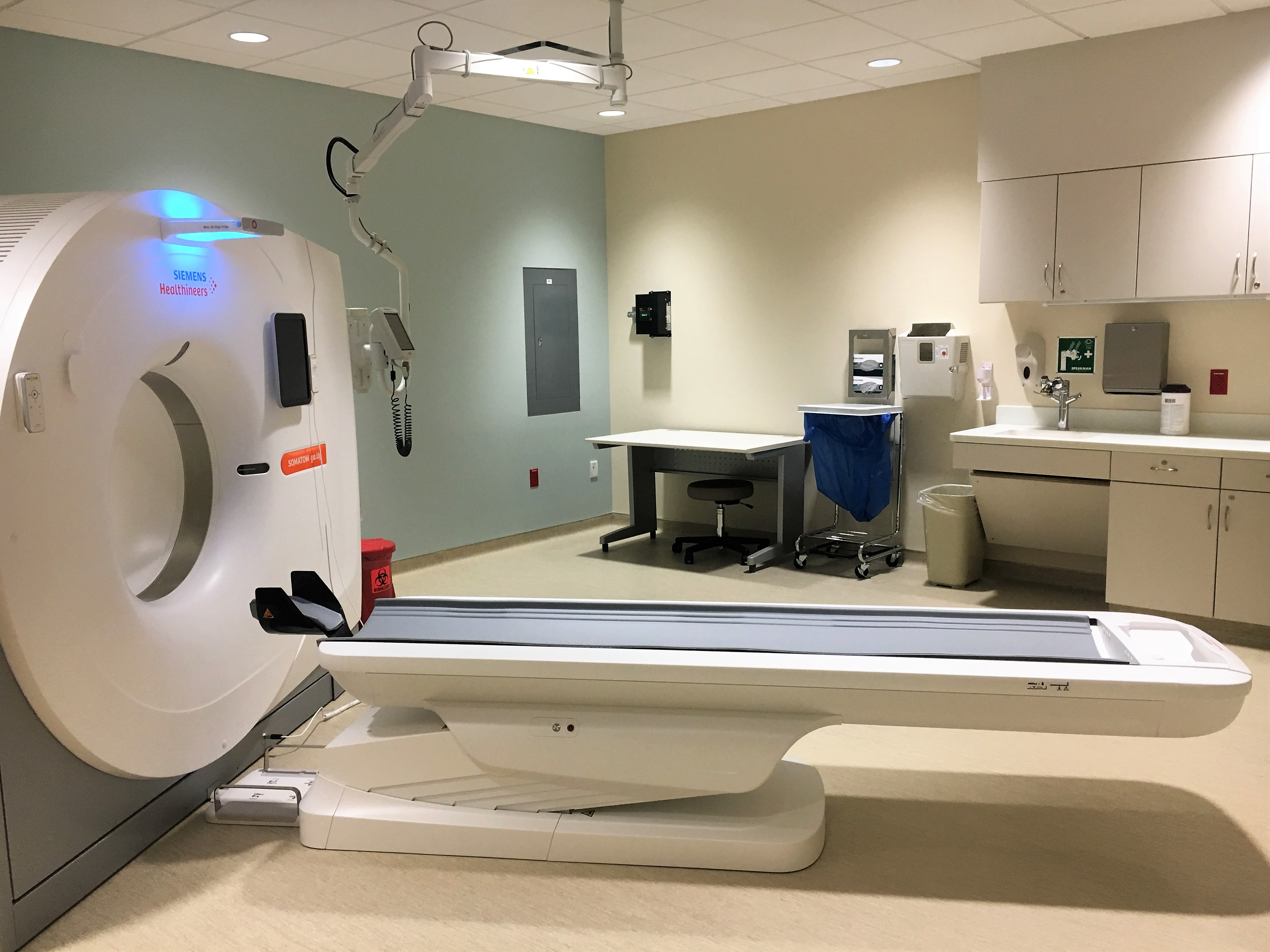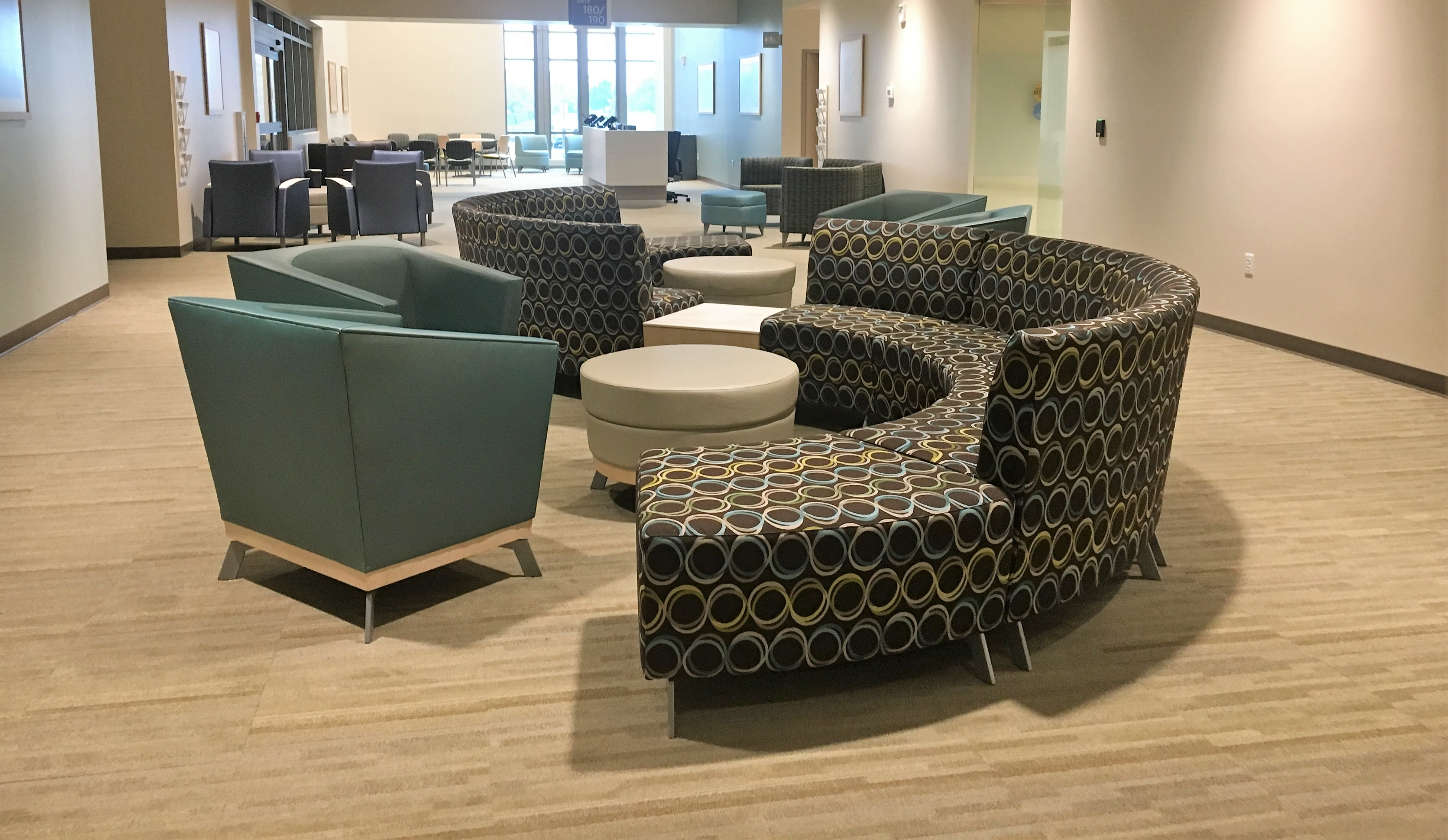
Local Health Care
Scroll down
Offering game-changing health care for Branson residents.
The Mercy Specialty Clinic Branson opened in 2018, bringing specialty services that Branson citizens have not had access to before.
The 53,000-square-foot clinic provides space for virtual care, a chemotherapy infusion suite, cardiology services including nuclear and echo stress tests and services in pain management, urology, orthopedics, podiatry and ENT. “This whole program is designed to make it easier for those patients who seek care through the Mercy system to be able to do that without having to travel,” says Dr. David O. Barbe, vice president over regional operations for Mercy and the president of the American Medical Association.
Physical therapy services will also be moved to this new clinic, which sets aside more space in a building that is adjacent to other clinics so patients can come for follow-up appointments and go to physical therapy easier. Another big focus of the clinic is technology and staying on the cutting edge of virtual care. More and more patients prefer to take care of issues outside of the hospital, and this facility is specifically designed to do that, Barbe says. “Ninety-five percent of care takes place in an ambulatory setting,” he says. “This building and the services in it are designed to make that 95 percent the best they can be.”
Separate from the specialty clinic, one of the most exciting additions to the Mercy network is the 1,100-square-foot Autism Clinic. By partnering with the Arc of the Ozarks, the clinic provides autism screening and basic therapy services to children in Branson and Southwest Missouri.
MEET THE DOCTORS
Dr. Arthur E. Hale Jr. and his wife, Kimberly Hale, have worked for Mercy for nearly 20 years in family medicine and physical therapy, respectively. We asked them what drew them to Branson and what has made them stay for two decades.
Imagine Branson: What first brought you to the area?
Dr. Arthur Hale: We really wanted to do rural medicine. We wanted a small town. That’s a hard thing to do, and we were impressed with Mercy’s commitment to doing the rural clinics and helping the underserved. You look at some of the big systems, Mercy is one of the leading systems for health care in rural areas.
I.B.: Over those years, how have you seen the community grow?
A.H.: There’s been a lot of growth. We enjoy the Branson shows, and that has a lot to do with Kim’s mother—she loves them, so we would take the kids a lot to those shows. The ironic thing is our kids got involved in the theater, and they really took it and ran with it. All throughout school they did lessons and singing and everything. We kind of enjoyed the opportunities here for kids in the performing arts. They could get lessons from really, really qualified people who have been on Broadway and the East Coast and in really good conservatories who were here now because they were in the shows.
Kimberly Hale: The opportunity with the arts and the culture and the symphony is really growing in the area. That’s why we’re really involved with the Branson Regional Arts Council because we’re trying to help promote that through a conservatory approach.
I.B.: What would you say to people who are considering moving to Branson?
A.H.: I think if people haven’t visited they’d be really surprised at the outdoors and how beautiful it is. The cost of living is very reasonable. You can have a nice home with the land if you want—anything from a condo to a farm.
K.H.: Branson is a great place to live due to all of the family-friendly things there are to do in the area. There are plenty of outdoor activities, cultural activities, great places to eat, shop, enjoy nature, and relax.
A.H.: The school system in the area provides quality academics and the teachers are great. Our two children grew up in the school system here and are now both attending Stanford University. We had a foreign exchange student from Germany this year and he was very impressed by the school system.





